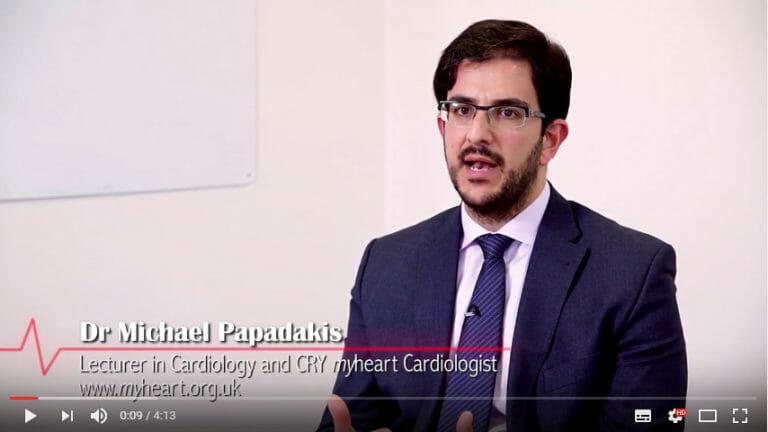Through a collection of video clips, CRY myheart cardiologist Professor Michael Papadakis has answered some of the most frequently asked questions (FAQs) about living with a potentially life threatening heart condition or an ICD.
These questions are split into sections below. Click on any question to open a new window where you can hear Professor Papadakis’ response. Also listed are videos recorded by members of the myheart network where they have shared their experiences of having different tests and treatments.

If you have a question about your cardiac condition, please fill in the form. These questions will be included next time we film with CRY’s myheart cardiologist, Professor Michael Papadakis. If your query is urgent, please email your question to myheart@c-r-y.org.uk.
Through a collection of video clips, Former ICD and Pacing Manager, St George’s Hospital, Sue Jones, will answer some of the most frequently asked questions (FAQs) about ICDs. Please post any general question you have on ICDs through the form below. If your query is urgent, please email your question to myheart@c-r-y.org.uk
Please note that these queries are held in strict confidentiality and your name would nowhere be mentioned in the videos.